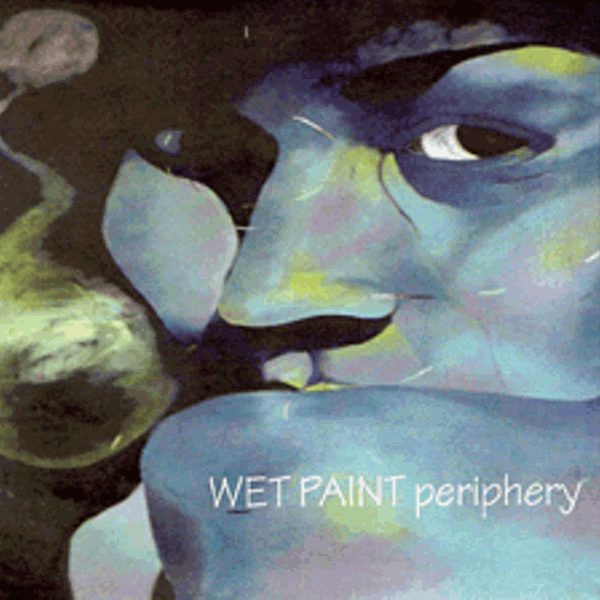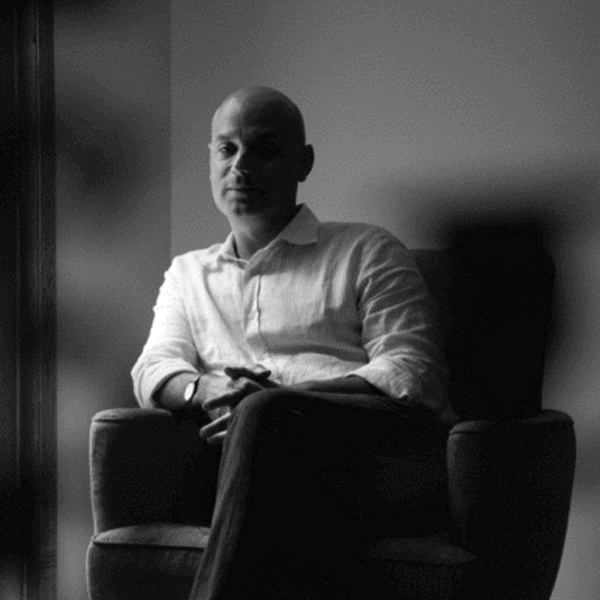On February 1, 2002, when Wall Street Journal reporter Daniel Pearl was murdered in Pakistan by the terrorists who kidnapped him, the world lost much more than an accomplished, highly acclaimed journalist. It also lost a beloved son. A loving husband. The father of a new baby boy. A selfless, giving friend to many. And, in a fact less widely reported by the media Pearl served, the Earth was also robbed of a skilled, avid musician, one who loved endless varieties of music and threw himself into the joyful act of performing with the same deep passion he reserved for the revelatory stories he filed as a correspondent.
“Danny was a really big music-head,” says radio host, producer/engineer, and musician Todd Mack, who was a close pal of the late journalist and launched FODfest—FOD being an acronym for Friends of Danny—in 2004. FODfest is a concert tour that takes place every October as part of Daniel Pearl World Music Days, a global event organized by the larger Daniel Pearl Foundation. “[Pearl] was an incredible musician, a classically trained violinist who loved Bach and all the masters. But he was also totally crazy about bluegrass, loved Doc Watson, Bill Monroe, David Grisman, Mark O’Connor. And he was a huge fan of timeless rock stuff like Springsteen, Dylan, the Beatles, the Stones. Bob Marley, Willie Dixon. All kinds of stuff.”
Pearl was born in Princeton, New Jersey, in 1963 to a Palestinian-born Israeli father and an Iraqi Jewish mother and grew up in LA’s Encino area. From 1981 to 1985 he majored in communications at Stanford University, co-founding a student newspaper, earning a bachelor’s degree, and graduating with honors. He briefly interned as a Pulliam Fellow at the Indianapolis Star, took an eye-opening trip to Europe, China, and the Soviet Union, and relocated to the Berkshires, where he worked for the North Adams Transcript and the Berkshire Eagle. Next came a position at the San Francisco Business Times, and eventually a coveted post with the Wall Street Journal’s Atlanta bureau in 1990. But no matter where his occupation took him, Pearl’s violin came along, too. Whenever the young reporter-musician had free time in a new location, be it in the US, Europe, or the Middle East, he would almost immediately seek out the local jam sessions and sit in.
“I actually met in Danny in Atlanta in 1991, when I was going to school there,” recalls Mack from the control room of his Off the Beat-n-Track Recording Studio in Sheffield, Massachusetts, where he records independent artists and his weekly syndicated “Off the Beat-n-Track Radio Show” (heard locally on WKZE 98.1 FM). “I’d put an ad in the [Atlanta] entertainment paper for a violin player and he answered it. He showed up to jam and right away we just totally clicked, both musically and personally. It was wild, we loved a lot of the same music and got to be great friends really quickly. Danny could play anything he put his hands on; besides violin, he played bass and piano. And he picked up mandolin right away, no problem. I think he loved that instrument mostly because he could fit it in his suitcase really easily.”
After three years of rollicking Southern jam sessions, the two friends went their separate ways, Mack to Western Massachusetts and Pearl to the Wall Street Journal’s Washington, DC, bureau to cover telecommunications. In 1996, Pearl transferred to the Journal’s London office, along the way penning acclaimed stories that included a piece on a Stradivarius violin that was found on a highway on-ramp and another on Iranian pop music. Pearl’s most prestigious articles, however, were his exposes on the Balkan ethnic wars, in which he uncovered that the charges of an alleged genocide in Kosovo were unsubstantiated, and on the American missile attack on a supposed military site in Khartoum, which he proved to be a pharmaceutical factory.
Pearl was in Karachi working on a story about would-be shoe bomber Richard Reid when he was abducted by a militant group called the National Movement for the Restoration of Pakistani Sovereignty. “I really think Danny took that assignment as way to get around covering the lead-up to the US invading Iraq,” says Mack. “I know he was disgusted with how the press was totally caving in to and not challenging the [Bush] administration.” Pearl’s kidnappers claimed he was a CIA agent and threatened to kill him unless their demands, which included the release of all Pakistani terror detainees, the end of US presence in the region, and the halting of a shipment of F-16 fighter planes to Pakistan, were immediately met; the group distributed photos and videos of Pearl in captivity via the Internet. But after 10 tortuous, gut-wrenching days that captivated the world, the journalist was eventually murdered by his captors. Pearl’s killers were later caught, and the ringleader has been convicted and sentenced to death for the murder (no date has been set for his execution and his lawyers have filed an appeal, maintaining that one of the other participants is the actual killer).
“The day Danny was killed was the blackest day of my life,” says Mack, his eyes tearing up as he recalls learning of the murder. “When I got the call saying he’d been killed, I just froze, I literally couldn’t move for, I don’t know, several minutes. But then I got right on the phone to let Danny’s friends know. I wanted them to hear it from me first, instead of from Dan Rather or someone like that.” Pearl’s son, Adam Daniel Pearl, was born three months after the murder.
Even after his death, Pearl’s story has continued to resonate with the public, becoming the subject of numerous books, including a collection of his writing, At Home in the World (2002, Free Press), and an HBO documentary, The Journalist and the Jihadi: The Murder of Daniel Pearl, and inspiring musical works by composers Steve Reich and Russell Steinberg. Most famously, A Mighty Heart (2007, Scribner), the memoir by Pearl’s widow, Mariane Pearl, was adapted into a 2007 film of the same name starring Angelina Jolie. But perhaps the reporter’s greatest legacy is the Daniel Pearl Foundation, which was established by his parents, Judea and Ruth Pearl, shortly after his death to further the ideals that inspired his life and work by promoting cross-cultural understanding through journalism, music, and other forms of communication. The organization’s board includes such figures as Bill Clinton, Queen Noor, Christiane Amanpour, Ted Koppel, Itzhak Perlman, Elie Wiesel, and others, and sponsors Daniel Pearl Music Days, a week-long, worldwide series of concerts that takes place around Pearl’s October 10 birthday.
To coincide with the annual event, Mack founded FODfest in 2004, staring out with a modest concert in the backyard of his studio/home. Since then, the happening has grown to become a three-week national tour of folk-based jam sessions that this year kicks off with an October 10 concert at the Mahawie Theater in Great Barrington, wends its way south to Atlanta and Nashville, and finishes in California. Mack and several other musicians will perform on all 20 dates of the volunteer-run, donation-funded tour, but the majority of the players are local to each of the itinerary’s stops.
“The sessions are free to attend, and we try to give anyone who wants to play the chance to sit in,” says Mack. “Last year we had so many people who wanted to play we had to turn some away. But this time we’re a lot more organized and prepared. Before, I did the booking and a lot of the groundwork but now we’re working with a booking agency and a PR firm. So, hopefully, I won’t get an ulcer.” The 2007 tour featured over one hundred musicians from 14 states and three countries; this year, Mack expects upward of 250 players from all parts of the globe.
“FODfest is the true embodiment of Danny’s spirit—a tour he would definitely not miss,” says Judea Pearl, a revered computer scientist and philosopher who has taught at UCLA since 1970. “It is on one hand a faithful enactment of Danny’s passion for music as an instrument for borderless friendships, and on the other hand a statement of defiance against the forces that took his life and the culture of hatred that threatens music and friendship.”
Indeed, the pervasive feeling of musical bonhomie and the new friendships that spring up between the players, many of whom have never actually met prior to their time on stage together, has become almost legendary for an event of FODfest’s relatively young age. “The shows are great, really cool events, but they’re also bigger than just a night of folk music,” says Newburgh singer-songwriter Todd Giudice, who performed at FODfest 2007 and will appear again on this year’s tour. “They’re also a way to address a really deep and twisted subject, racial and religious hatred, while still keeping everything on the light side. The spirit of the event is really tied into what I understand Danny loved to do, which was to bring people together to jam.”
Six years after his tragic passing, Daniel Pearl continues to erase borders and unite others through music. Maybe turning the UN into a folk club isn’t such a bad idea.
FODfest 2008 begins with a free concert and jam session at the Mahawie Theater in Great Barrington on October 10. www.fodfest.org.



















